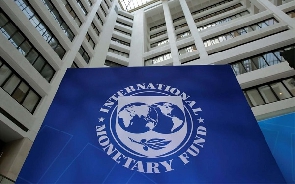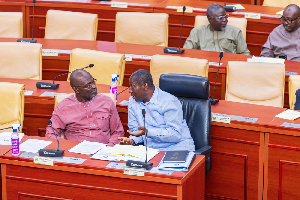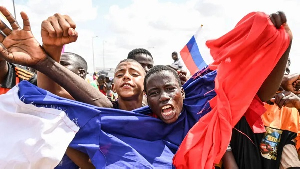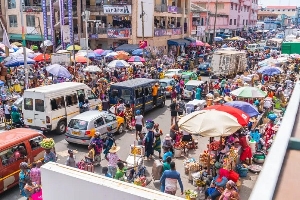As Ivory Coast battles economic headwinds, the Executive Board of the International Monetary Fund (IMF) has approved a 42-month arrangement under the Extended Credit Facility (ECF) for Togo.
The multilateral lender said the arrangement will provide financing of SDR 293.60 million which is about US$390 million, with an immediate disbursement of SDR 51.38 million or about US$68.3 million to the authority.
Togo continues to face headwinds, following a series of shocks in recent years, IMF said in an official statement released, noting that the ECF arrangement will help accelerate poverty reduction.
The credit support is expected to help Togo maintain macroeconomic stability, and catalyse further external financing, benefitting Togo and thereby contributing to the macroeconomic and external stability in the West African Economic and Monetary Union (WAEMU).
IMF said the authorities’ strong reform program aims to help maintain macroeconomic stability and accelerate poverty reduction by making growth more inclusive while strengthening debt sustainability, and conducting structural reforms to support growth and limit fiscal and financial sector risks.
Following a series of shocks in recent years, Togo continues to face headwinds, including more difficult access to financing following monetary policy tightening in advanced economies, a challenging security situation at the northern border, and persistent food insecurity compounded by climate change.
Fiscal deficits and debt have increased, reversing the debt reduction achieved during the 2017–20 ECF arrangement, eroding fiscal space and buffers to absorb shocks, and contributing to regional vulnerabilities.
Key policies include a strengthening of social spending and the social safety net, a growth-friendly fiscal consolidation thanks in part to ambitious fiscal revenue mobilization, structural reforms to support growth by enhancing the business environment, and banking sector reform including recapitalization of the remaining state-owned bank.
Commenting, Okamura, Deputy Managing Director, and Acting Chair, said, “Following the shocks of recent years (the COVID pandemic, terrorist attacks, and spikes in global food and fuel prices), Togo continues to face headwinds, including more difficult access to financing following monetary policy tightening in advanced economies, a still challenging security situation at the northern border, and persistent food insecurity compounded by climate change.
“To address these challenges, the authorities have requested a 42-Month Arrangement under the Extended Credit Facility. The program will help accelerate poverty reduction, maintain macroeconomic stability, and catalyze further external financing, benefitting not only Togo but the WAEMU region.
Okamura explained that the authorities intend to make growth more inclusive by strengthening social spending and social safety nets as well as enhancing the living conditions of populations in the north of the country, thereby complementing the military response to terrorism with a civilian response.
In this context, it will be important to substitute generalized fuel subsidies with more targeted and cost-effective measures to protect the vulnerable, including through cash transfers.
The authorities should continue their efforts at growth-friendly fiscal consolidation to create space for spending on Togo’s development needs while strengthening debt sustainability.
“In this context, the impressive start of fiscal consolidation in 2023 is praiseworthy. The Government’s intention to raise tax revenue by an ambitious 0.5 percent of GDP per year is also welcome.
“For these efforts to succeed, broadening the tax base by streamlining tax expenditures will be critical. The authorities should continue efforts at enhancing the business environment to support growth—including by strengthening the governance, anti-corruption
“…AML/CFT frameworks—along with their commitment to reform the remaining state-owned bank to reduce risks to financial sector stability. The provision of budget resources for the bank’s recapitalization to zero regulatory capital is a welcome first step.”
Togo’s fiscal deficits and debt have increased, reversing the debt reduction achieved during the 2017–20 ECF arrangement, eroding fiscal space and buffers to absorb shocks, and contributing to regional vulnerabilities in the West African Economic and Monetary Union.
Two undercapitalized banks, one state-owned and the other recently privatized, pose risks to financial sector stability and associated fiscal risks. The authorities are requesting financial support of 200 percent of quota (SDR 293.60 million) under a 42-month ECF arrangement.
The government seeks to strengthen debt sustainability through a large fiscal consolidation in line with a dual fiscal anchor. The anchor’s first element is to reduce the overall risk of debt distress from high to moderate by end-2026, the last full year before the end of the program in mid-2027.
The second element is to lower the fiscal deficit to 3 per cent of GDP by 2025 to avoid overtaxing the regional market’s ability to provide financing, in line with the (currently suspended) regional.
Business News of Tuesday, 5 March 2024
Source: dmarketforces.com













